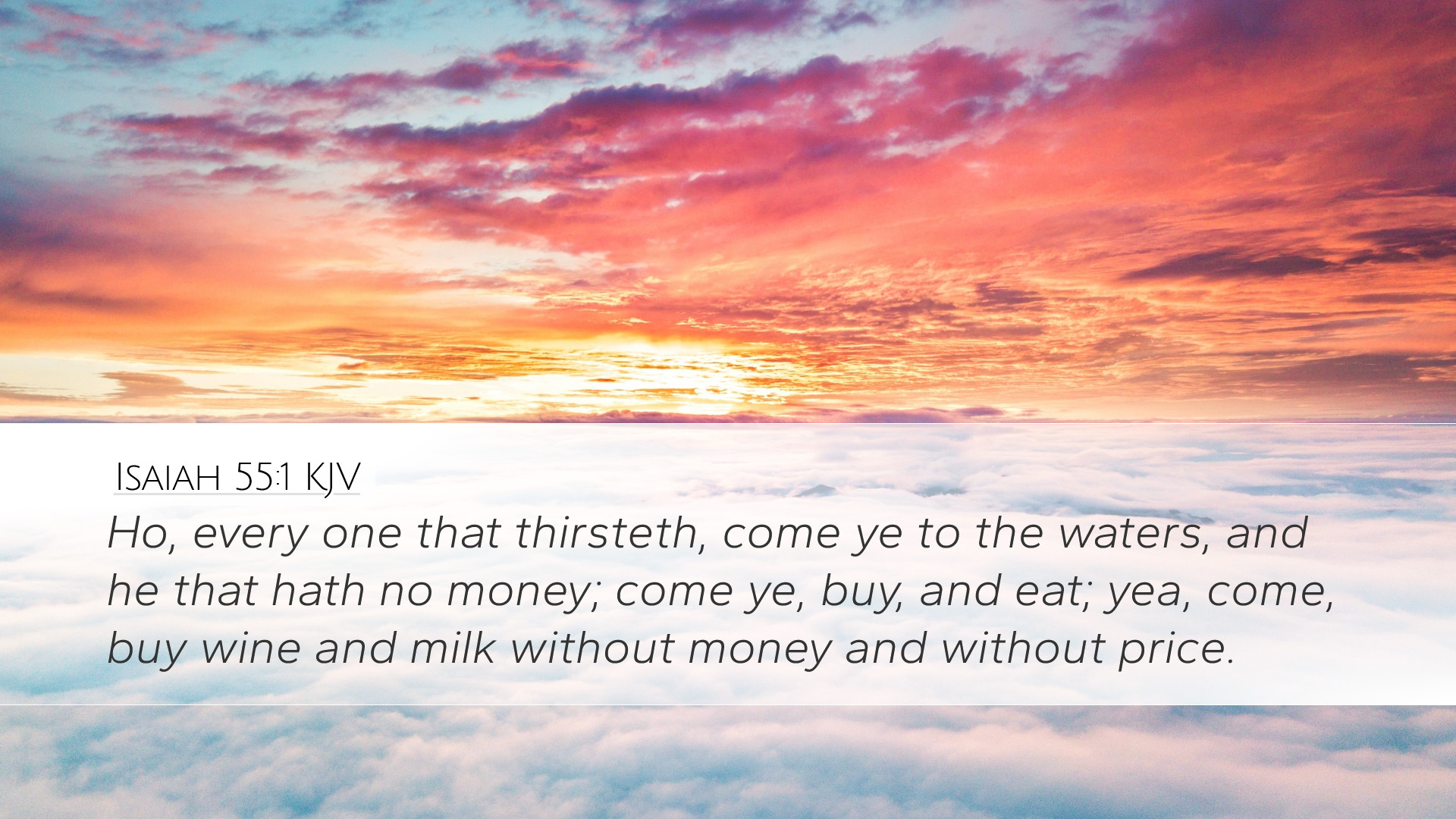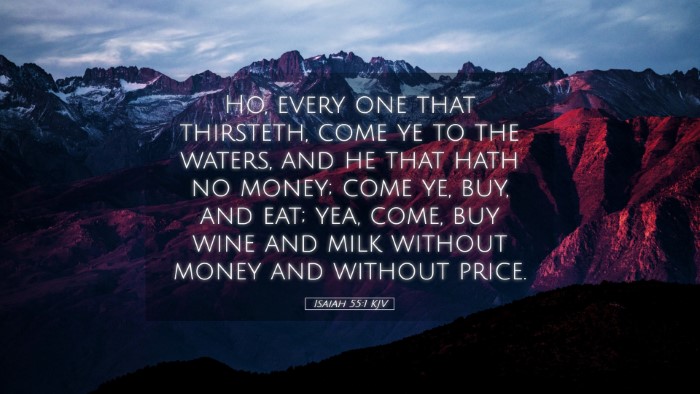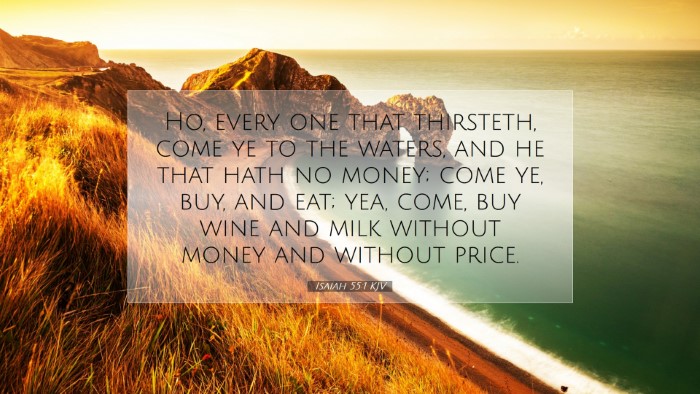Isaiah 55:1 - "Come, everyone who thirsts, come to the waters; and he who has no money, come, buy and eat! Come, buy wine and milk without money and without price."
Introduction
This profound invitation in Isaiah 55:1 speaks to the spiritual hunger and thirst of humanity, beckoning all towards the abundant grace that God offers. This verse encapsulates themes of Divine generosity, accessibility to salvation, and the uncompromising mercy of God, which culminates in an invitation not only for physical sustenance but ultimately for spiritual fulfillment through a relationship with Him. Here, we will explore the insights of historical commentaries to glean a richer understanding of this text.
The Invitation to All
Universal Access to Grace
Isaiah's call, "Come, everyone who thirsts," is profoundly inclusive, indicating that God's invitation is extended to all people, regardless of their social status or material wealth. As Matthew Henry notes, the emphasis on “everyone” suggests that this is not a select group but a universal beckoning to the spiritually needy.
Albert Barnes reflects on the significance of this inclusivity, emphasizing that God’s grace can be accessed by anyone who acknowledges their spiritual need. The appeal to "come" is frequent throughout Scripture, symbolizing readiness and willingness to engage with God. This plain directive invites deep reflection on the human condition—our inherent thirst and need for Divine connection.
The Symbolism of Thirst and Water
Spiritual Thirst
The metaphor of thirst represents a profound spiritual hunger that is often unrecognized. Adam Clarke articulates that thirst signifies an intense longing for righteousness and a craving for truths that satisfy the soul. In biblical terms, water is frequently associated with life, sustenance, and purity, pointing to the living water that Jesus refers to in the New Testament.
This verse emphasizes the availability of this water; it flows freely from God's grace without any prerequisite. Thus, the invitation to partake in the waters should inspire believers to approach God, acknowledging their desperate need for His life-giving presence.
Economic Imagery—Buying and Not Buying
The Concept of ‘Buying’ Without Cost
Isaiah’s admonition to “buy and eat” without money raises intriguing theological considerations. Matthew Henry points out that while the act of buying usually entails a transaction, here it symbolizes a deeper truth: coming into a relationship with God requires no financial cost, only spiritual currency—a contrite heart, faith, and sincere desire.
Albert Barnes highlights how this metaphor serves to dismantle the barriers often associated with religious access, particularly those related to wealth and status. The readiness to accept what is “without price” illustrates the grace of God, which is freely given to all who seek it. This remarkable grace disrupts societal norms, suggesting that salvation is rooted in God's generosity rather than human merit.
The Richness of Spiritual Sustenance
Wine and Milk: Symbolic Nourishment
Isaiah mentions wine and milk, which are rich symbols of abundance and nourishment. Adam Clarke interprets wine as representing joy—highlighting the celebratory nature of spiritual blessings—while milk signifies the essential sustenance needed for growth. Together, they reflect the fullness and richness of what God provides to those who seek Him.
This combination points believers to the transformative power of the Gospel, inviting them not only to be filled but to find joy and nurture in their relationship with God. The act of consuming these substances metaphorically encourages spiritual maturity and growth in grace.
Conclusion: A Call to Respond
Isaiah 55:1 encapsulates the heart of the Gospel—a compelling invitation for all to approach God, acknowledging their thirst and lack. Through the insights of esteemed commentators like Matthew Henry, Albert Barnes, and Adam Clarke, we are reminded that this passage is not merely a call to physical action but an urgent plea for spiritual awakening.
As we conclude, may this verse inspire a renewed desire not only to partake of God's abundant grace but also to share this invitation with a world that longs for true sustenance and fulfillment. In a time where many seek satisfaction in transient things, the enduring message of Isaiah remains a testament to God’s open arms and unending love.


